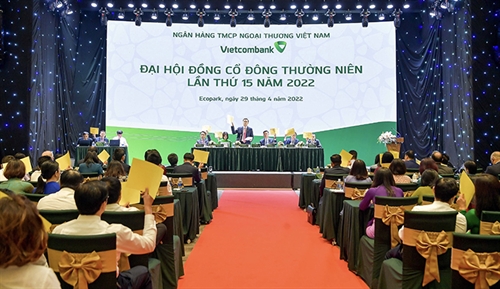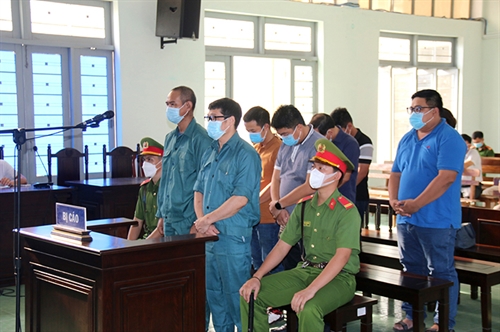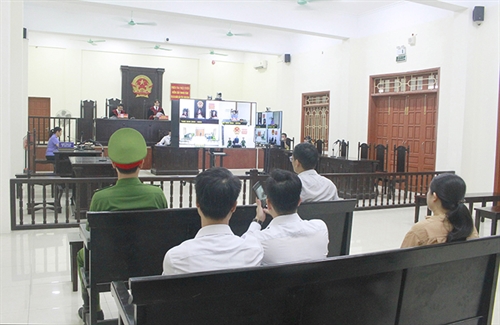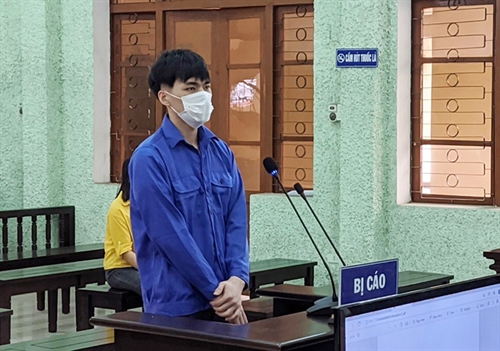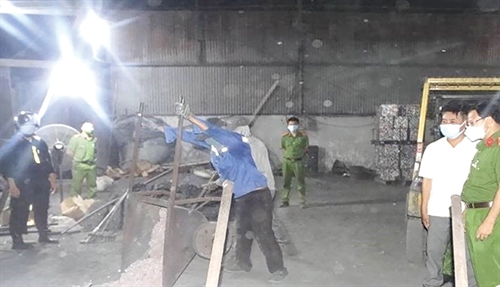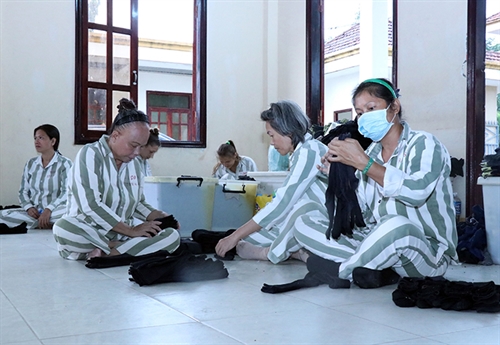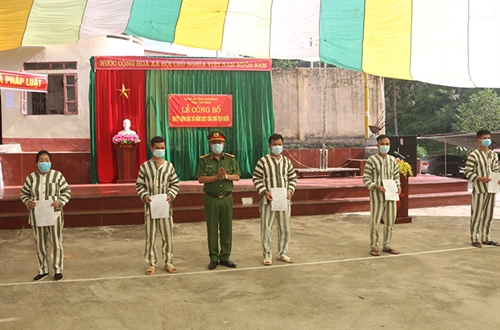In the present reality, it remains difficult for law enforcement agencies to distinguish the crime of violating regulations on multilevel marketing (MLM) activities (specified in Article 217a of the 2015 Penal Code (the Code)) from the crime of appropriating property through swindling or deceiving customers (specified in Article 174 or 198 of the Code) and even from similar civil disputes, due to lack of explicit grounds. In this article, the authors analyze and clarify the Code’s provisions on MLM-related crimes as well as their inadequacies and make some recommendations for improving those provisions with regard to the crime constituents.
Le Dang Doanh[1] and Pham Tai Tue[2]
Hanoi Law University
Definition of MLM and MLM-related crime under Vietnam’s law
Article 3 of Government Decree 40 dated March 12, 2018 (Decree 40), defines MLM as a business activity using a multilevel and multi-branch network of participants who earn commissions, bonuses and other economic benefits derived from sales results of their own and other participants.
Under Article 217a of the Code, the crime of violating regulations on MLM activities means an act of a person organizing business operations after the MLM model who intentionally violates regulations on management of MLM activities for self-seeking purposes or causing damage to other persons which is subject to criminal handling under the Code[3].
This crime has the following principal characteristics:
* The person organizing MLM activities has set up a multilevel and multi-branch network which conducts business activities in violation of the State’s regulations on MLM management as specified in Decree 40.
* Violations in the course of organizing MLM activities are usually hidden in civil transactions of purchase and sale for earning illicit profits and therefore hard to be detected and criminally handled.
* Its physical-act constituent is similar or even identical to that of such crimes as appropriating property through swindling, making false advertisements, and deceiving customers[4].
* Its consequences are very serious as most victims (damage sufferers), usually in large numbers in most cases, are easily scammed due to their limited knowledge or greed, or attracted by promissory commissions.
A person will be charged with this crime when he carries out MLM activities without an MLM registration certificate granted by a competent agency[5] or in contravention of registered MLM activities in such a certificate. Under Articles 4 and 5 of Decree 40, acts carried out in violation of an MLM registration certificate include:
- Requesting a person to buy a certain quantity of goods in order to enter into a contract on participation in MLM activities;
- Requesting a person to deposit a certain money amount (participation fee) in order to participate in the MLM network;
- Selling goods to network participants at prices higher than market prices of such goods;
- Refusing to buy back goods previously sold to network participants as committed in contracts and provided by law;
- Paying bonuses or commissions to network participants based on the number of new participants they have lured into the network, but not based on their sales results;
- Failing to pay bonuses or commissions to network participants as committed in contracts without any plausible reason;
- Providing false information about bonus payment plans and benefits from the participation in the MLM network, with exaggerated benefit and commission amounts enjoyable by participants;
- Providing false or misleading information about properties and utilities of goods in order to sell them at high prices to network participants;
- Providing untruthful information about operation of enterprises, through presenters and trainers at conferences, seminars and training courses, or in enterprises’ documents on income sources, bonuses, commissions, number of network participants, etc.
Any person who has committed one of the above-mentioned violations will be criminally charged if he has been administratively sanctioned or convicted for such violation but has not yet had such conviction expunged, and repeats such violation.
Any person who earns an illicit profit amount of between VND 200 million and under VND 1 billion from MLM activities will also face criminal penalties. However, there should be more specific guidance from competent agencies on how to distinguish earning illicit profits from appropriating property through swindling.
Any person who causes damage valued at between VND 500 million and under VND 1.5 billion to other persons while carrying out MLM activities will also be treated as a crime. Regretfully, there is no provision specifying damage victims and damage-causing acts. So, “other persons” (damage sufferers) may include network participants and customers of MLM companies[6].
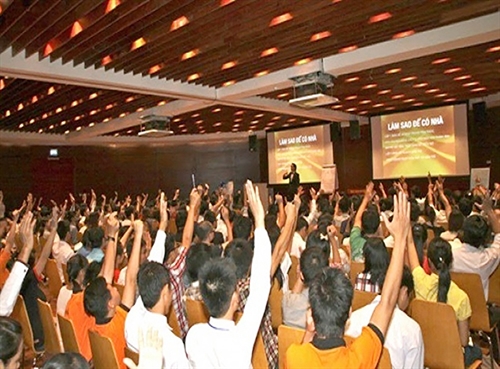 |
| People join a conference held by a multilevel marketing firm__Photo: VNA |
Recommendations
Firstly, competent agencies should issue documents guiding the implementation of Article 217a of the Code, which should:
* More specifically guide physical signs of violation acts of persons organizing MLM activities without MLM registration certificates or in contravention of MLM registration certificates, e.g., guidance on severity of violations to be administratively handled or treated as a crime, to serve as grounds for distinguishing this crime from other similar crimes like appropriating property through swindling and deceiving customers.
* Provide specific instructions on signs of “earning illicit profits” and “causing damage to other persons” in the basic crime constituents, with more details on “illicit profits” earned through selling goods at prices higher than market prices, paying commissions at variance with commitments in contracts or buying back goods at prices lower than prices committed in contracts without any plausible reason.
* Clearly define damage sufferers, who may include network participants and outside customers, and clarify damage-causing acts. This will help uniformly apply the Article and distinguish the crime from damage-causing acts of civil nature.
Secondly, this crime should only be regarded as a crime committed in an intentional manner in order to make it easier to assess its severity and prescribe an appropriate penalty frame. It is also suggested to convert the circumstance of causing damage valued at VND 500 million or more to other persons[7] into an aggravating circumstance in Article 217a.2 of the Code.
Thirdly, it is a need to add to Article 217a of the Code a provision on the crime-determining sign of “the number of network participants of between 50 and under 100” among the basic crime constituents, for the reason that Clause 2 of the Article provides an aggravating circumstance of “the number of network participants of 100 or more” for penalty frame determination, but not for crime determination.
This sign should also be combined with the sign of earning an illicit profit amount of under VND 200 million to serve as a ground for determining the danger of the violation to be treated as a crime.
In sum, Article 217a of the Code should be reread as follows:
“Article 217a. Violating regulations on multilevel marketing
1. A person who organizes business operations after the model of multilevel marketing without a multilevel marketing registration certificate or in contravention of his/her multilevel marketing registration certificate in one of the following cases, if not falling into the cases specified in Articles 174 and 290 of this Code, shall be subject to a fine of between VND 500 million and VND 1 billion, non-custodial reform for up to three years, or imprisonment of between six months and two years:
a/ Having been administratively sanctioned for this act or having been convicted of this offense and not had such conviction expunged;
b/ Earning an illicit profit amount of between VND 200 million and under VND 1 billion;
c/ Establishing a network of between 50 and under 100 participants and earning an illicit profit amount of under VND 200 million.
2. Committing the crime in one of the following cases, the offender shall be subject to a fine of between VND 1 billion and VND 5 billion or imprisonment of between one year and five years:
a/ Earning an illicit profit amount of VND 1 billion or more;
b/ Causing damage valued at VND 500 million or more to other persons.
c/ Establishing a network of 100 participants or more.
3. The offender may also be subject to a fine of between VND 100 million and VND 500 million or prohibition from practicing certain professions or performing certain jobs for between one year and five years.”.-
[1] LL.D., Email: ledoanhhs@hlu.edu.vn[2] LL.D., Email: phamtue.hs@hlu.edu.vn[3] Article 217a of the Code: “1. A person who organizes business operations after the model of multi-level marketing without a multi-level marketing registration certificate or in contravention of his/her multilevel marketing registration certificate in one of the following cases, if not falling into the cases specified in Articles 174 and 290 of this Code, shall be subject to a fine of between VND 500 million and VND 1 billion, non-custodial reform for up to three years, or imprisonment of between six months and two years:a/ Having been administratively sanctioned for this act or having been convicted of this offense and not had such conviction expunged;b/ Earning an illicit profit amount of between VND 200 million and under VND 1 billion;c/ Causing damage valued at between VND 500 million and under VND 1.5 billion to other persons.”[4] Articles 174, 197 and 198 of the Code.[5] MLM business registration must comply with Articles 20, 21 and 22 of Decree 40.[6] Under law, MLM companies are obliged to buy back goods they have sold to network participants at prices higher than market prices and refund at least 90 percent of the goods value. Damage is caused when MLM companies refuse to do so or delay the refund to network participants, thus causing damage valued at VND 500 million or more to the latter.Damage can also be caused to customers who buy goods for use in case MLM companies make false advertisements which mislead customers as to quality, properties or utilities of such goods, thus causing damage valued at VND 500 million or more to such customers. This case should be distinguished from the act of deceiving customers (Article 198 of the Code).[7] Article 217a.1.c of the Code.
